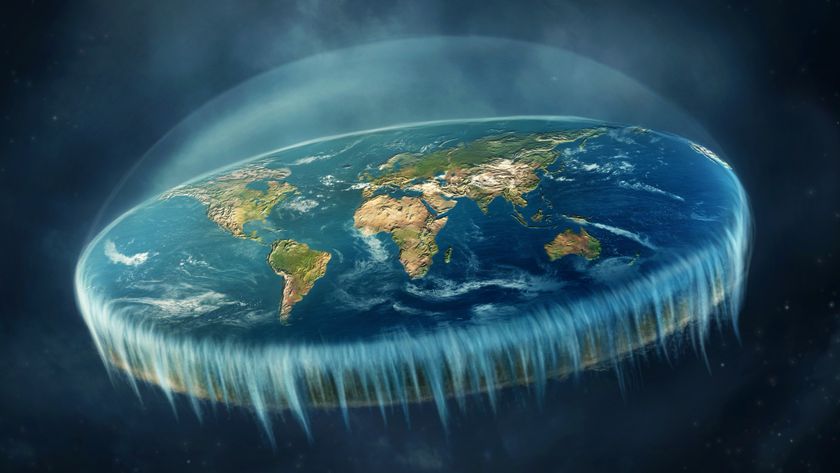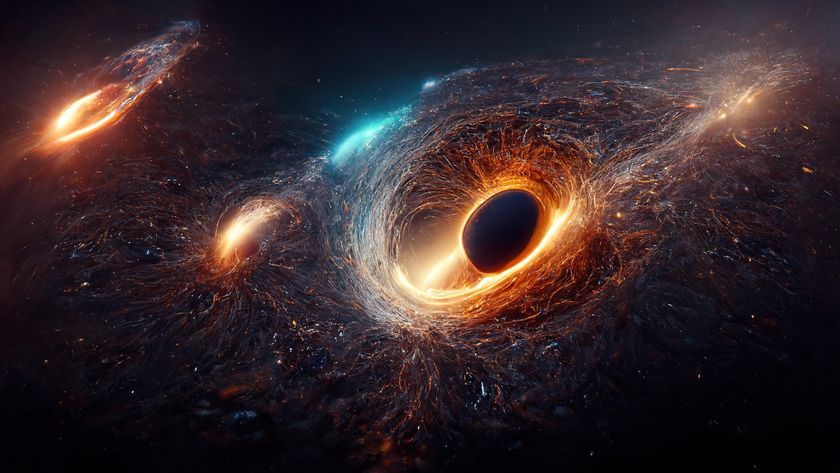How UFOs and Bigfoot Could Save Earth

These days green is big. The environmental movement has been around for decades, but issues such as global warming, recycling, and saving the planet have never been so much in the spotlight. Though many corporations have arrived late in the game (cynics might suspect they saw another type of green in "green marketing"), many New Agers and believers in the mysterious and paranormal have long incorporated environmentalism into their beliefs.
Among people who claim to have been abducted or contacted by space aliens, messages about world peace and warnings of impending environmental disaster are common.
One popular belief is that UFO sightings are simply glimpses of the benevolent aliens watching over us, monitoring our destructive ways. We should work to save the planet, the thinking goes, but if we can't, our savior space brothers will intervene just before the world destroys itself, either through environmental pollution or global nuclear war. Once that happens, we Earthlings will see the error of our ways, ushering in a new era of peace, love, and global consciousness.
Unknown creatures
This environmental concern is echoed in the "cryptozoology" community as well.
For many people who believe in mysterious creatures such as Bigfoot or the Loch Ness monster, the search for these animals is urgent. We must find them to save their habitats from impending ecological doom.
There is even a longstanding and lively debate among Bigfoot researchers as to whether or not Bigfoot should be killed if the chance ever presents itself. Some claim that since the only thing that will finally prove the creatures' existence is a body, killing one is justified. Once the animal is proven to exist, measures can be taken to protect them. Others worry that the relative rarity of sightings suggests that the existing population (estimated in the tens or hundreds of thousands) can't afford to lose even one Bigfoot.
Sign up for the Live Science daily newsletter now
Get the world’s most fascinating discoveries delivered straight to your inbox.
Regardless of how many Bigfoot can dance on the head of a pin, the issue will remain safely on the back burner until at least one Bigfoot, live or dead, is finally found. Many Bigfoot buffs would prefer that one is never discovered. As one contributor to Cryptomundo.com, a Web site about such creatures, wrote, "You almost feel you're jeopardizing these creatures if you reveal their locations. One thing we should have learned by now is that man destroys everything he touches."
This bleak notion that humans inherently (and inevitably) destroy everything is common in New Age circles.
However, though humans can destroy, we can also build and protect. The revival of animals from the brink of extinction (such as bald eagles in North America and elephants in Africa) are but two of many examples.
Mankind may or may not be marching blithely on the path to ecological self-destruction, but if Bigfoot or aliens help encourage people to reduce, reuse, and recycle, so much the better. That's why they call them "little green men."
- Top 10 Unexplained Phenomena
- 10 Alien Encounters Debunked
- Top 10 Ways to Destroy Earth
Benjamin Radford is managing editor of the Skeptical Inquirer science magazine. His books and films can be found on his website.



